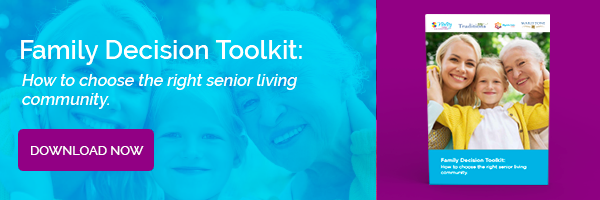While stories of elder financial abuse are often in the news, you may not realize how common it is or how costly to the victims. In fact, a 2019 report by the Senate Special Committee on Aging found that seniors are now losing at least $2.9 billion annually as a result of this exploitation. What’s more, that same report estimates that one in 10 Americans 65 or older who live at home will become a victim. What can you do? See how these tips can help prevent elder financial abuse from happening to you or your loved one.
What is Elder Financial Abuse?
Elder financial abuse (or elder financial exploitation) is the illegal or improper use of a senior’s funds, property, or resources by another person. It can happen in many ways including scams, predatory products, and services that target seniors, as well as financial exploitation by people you trust such as family members, friends, and/or caregivers. Risk factors include:
- Age – Those between the ages of 80 and 89 are most vulnerable.
- Gender – Women are more commonly victims of elder financial abuse.
- Diminished capacity – Many victims have experienced cognitive decline.
- Social isolation – Living alone, having limited social relationships, and relying on others for care can put you at higher risk.
The Warning Signs
Of course, just because someone may be more at risk for elder financial abuse doesn’t mean it’s a given that they will fall victim. Awareness is one of the most important tools at your disposal. When it comes to your loved one, be on the lookout for:
- Unpaid bills which they should be able to pay.
- Out of character spending behavior.
- New friends who don’t seem to have their best interests at heart or who are claiming a right to funds.
- Sudden changes in their will, trust, insurance, or other financial documents.
- Sudden or unexplained transfers of assets.
- Confusion over recent financial arrangements or changes.
Elder Financial Abuse Prevention Tips
In general, there are some key prevention tips you or your loved one should follow such as discussing finances with trusted friends, family, and/or financial professionals, using cards instead of cash, never sharing financial or personal information over the phone or giving access to financial accounts, getting written details for offers or prizes and always getting a second opinion before changing power of attorney, wills, trusts or any financial arrangements.
That said, there are common scams that account for the majority of elder financial abuse including:
- Sweepstakes scams – Using an official-sounding name to notify you that you’ve won a sweepstake and then asking for money or bank account info to deposit your winnings. In reality, no legitimate sweepstake will ever ask for money upfront.
- Identity theft – Occurs when someone steals your personal information to access your credit, bank accounts, medical information, or other financial info. To protect yourself, never give personal information over the phone and/or use your birthdate, social security number (even the last four digits), or other personal information as a password or other identifier.
- Grandparent scams – Someone calls you claiming to be your grandchild and asks for help like money to make bail, pay for a hospital bill, or to get home. They ask you to send it without telling the parent and usually know enough about your family, from social media, etc. to make it believable. Should this happen to you; always speak to a family member to find out if this could actually be your grandchild in need of assistance before sending any money.
- Charity scams – A scammer might slightly change the name of a well-known charity or they’ll make one up altogether and will pressure you to donate on the spot. This is even more common after natural disasters, and now during the COVID-19 pandemic. Always check the charity’s rating through BBB Wise Giving Alliance or Charity Navigator to make sure it’s legit before donating.
- Healthcare and prescription drug scams – This could be a TV ad for unnecessary products targeting seniors, a call offering insurance discounts, someone claiming to be from the government needing your Medicare number, or counterfeit medications being promoted as the real thing for less. As a preventative measure, never sign blank insurance claim forms, only give insurance and Medicare info to those who provided you with medical services, and always examine drug packaging then ask your doctor or pharmacist if you’re skeptical of it. And remember, if it sounds too good to be true; it usually is.
Elderly Financial Abuse from a “Trusted Person”
Unfortunately, the person(s) responsible for elder financial abuse is all too often someone you or your loved one already knows and trusts. Known as “trusted person” abuse, this could be a family member, friend, caregiver, or other acquaintance. Two of the most common examples are Power of Attorney abuse and forgery or changing legal/financial documents.
Preventative measures here include:
- Ensuring an objective third party looks over financial statements.
- Before signing documents, particularly if you’re feeling pressured, talk to another family member or contact a financial advisor.
- Being cautious of anyone suddenly interested in your life and/or finances.
- Always use a certified agency to hire caregivers, trust your instincts if you feel something isn’t right with the caregiver, and make sure to check references.
How to Report Elder Financial Abuse
Despite the large reported losses, elder financial abuse goes unreported more often than not; this is partially because victims feel ashamed, which they certainly shouldn’t, but also because you may not know where or how to report what’s happened. While we hope this never happens to you or a loved one; if it does, here’s what to do.
First, contact your local Adult Protective Services office or the Senate Aging Committee’s Fraud Hotline at 855-303-9470. You can also:
- Report identity theft by calling one of the three national credit bureaus to place a scam alert:
- Equifax: 1-800-685-1111 (Fraud Hotline: 1-888-766-0008)
- Experian: 1-888-397-3742 (Fraud Hotline: 1-888-397-3742)
- TransUnion: 1-800-916-8800 (Fraud Hotline: 1-800-680-7289)
- Report abusive financial products or services targeting seniors by contacting the Department of Financial Services at 1-800-342-3736 or by filing a complaint on the DFS website.
- Contact your State Attorney General’s office if you have been defrauded by a business or had assets stolen.
- Contact the IRS reporting hotline here or call 1-800-366-4484 to report scams.
For more information on senior living options, download the free guide Should You Stay or Should You Go: How to Decide Between Home and Senior Living. Or contact us today to learn more and schedule your tour!



